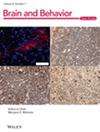The Relationship Between Human Cerebrospinal Fluid Proteins and the Risk of Delirium: A Study Based on Genetic Data
Abstract
Background
Delirium is an acute cognitive disturbance that is linked to increased healthcare costs, extended hospitalization, and a greater incidence of adverse outcomes, including cognitive decline. Despite its clinical importance, existing strategies for predicting and managing delirium remain inadequate. This study, therefore, sought to investigate the potential relationship between cerebrospinal fluid proteins and delirium via Mendelian randomization (MR) and to identify potential therapeutic targets.
Methods
Genetic data related to delirium were obtained from the 11th iteration of the FinnGen Biobank, which includes a total of 431,880 individuals of Finnish ancestry consisting of 3827 cases and 428,053 controls. Data on 910 cerebrospinal fluid proteins from 970 samples were collected via the ONTIME platform (https://ontime.wustl.edu/hg38/). MR analysis was used to evaluate genetic associations between cerebrospinal fluid proteins and delirium. Additionally, enrichment analysis was performed on cerebrospinal fluid proteins with genetic associations to identify potential cellular pathways and therapeutic targets.
Results
We identified 46 cerebrospinal fluid proteins associated with the occurrence of delirium. Among these, insulin (odds ratio [OR]: 1.35, 95% confidence interval [CI]: 1.07–1.70, p = 0.01), interleukin-7 (OR: 0.56, 95% CI: 0.37–0.85, p = 0.01), and B-cell lymphoma/leukemia 2-like protein 1 (OR: 0.63, 95% CI: 0.45–0.88, p = 0.01) were identified as key proteins. Horizontal pleiotropy had a minimal impact on establishing causal relationships, with p values of 0.08, 0.26, and 0.32, respectively. Additionally, no evidence of heterogeneity in genetic variation was found between these three cerebrospinal fluid proteins and delirium, with p values of 0.07, 0.45, and 0.96, respectively. Leave-one-out analysis further confirmed the stability and robustness of these associations. The enrichment analysis indicated that the cytokine-mediated signaling pathway plays a significant role in the pathogenesis of delirium.
Conclusion
Our study identified a genetic causal relationship between specific cerebrospinal fluid proteins and delirium, with insulin being a key factor. We also found that cytokine-mediated signaling pathways may contribute to the pathophysiology of delirium. Future research should focus on the roles of peripheral and central glucose metabolism, as well as cellular immunity, in the pathological processes of delirium.


 求助内容:
求助内容: 应助结果提醒方式:
应助结果提醒方式:


